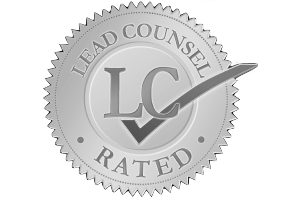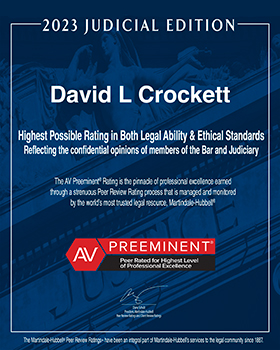Preservation Solutions
Alternatives To Probate
NOT ALL ESTATES REQUIRE PROBATE The purpose of probate court proceedings is to change ownership of money and property out of a deceased person’s name into the ownership of the heirs who are entitled to receive these items. However, there are exceptions to this. The more widely used exemptions from probate are described below.
Exception #1-Living Trust If a person has already made an estate plan before death such as a living trust then no probate is required to transfer ownership because it is done through the medium of a trust. However, the court system still has jurisdiction to decide disputes about trusts so if there are problems in distributing money or property through a trust any interested persons can file papers with the court to get things resolved. When a trust is properly formed and funded, the law recognizes the instructions in the trust as the equivalent of a Will. A “Living Trust” is also known as a “revocable trust” because it is typically revocable and changeable while the person creating the trust is still alive. There are serious property tax, income tax and estate tax consequences that can result from creating a living trust so it is recommended to have a skilled attorney involved with the establishment and funding of the living trust. For example, if transfers of real property to a living trust are not handled properly with the correct forms being used, the property taxes could increase to being based on current market value. As an example a person who purchased a home for $200,000 years ago would be paying approximately $2,000 in property taxes. However, if the house is transferred into a living trust at the time the house is worth $600,000, then the property taxes would go up to approximately $6,000 per year. The only way to avoid that is to have the proper documentation and papers filed along with the funding of the living trust. This is something that a trust attorney typically handles.
Exception #2-Joint Tenancy or community property. Also, if money or property is put into “joint tenancy” with another or into “community property with right of survivorship” then probate is not necessary because the survivor then gets 100% ownership by automatic operation of the law on the death of the first of the two owners. These forms of ownership are typically used where nobody has any children or others they want to benefit. For example, if a person owns a house in joint tenancy with his spouse then upon his death his spouse gets 100% ownership of the house. At that point the surviving spouse can do whatever she wants with the house with no restrictions. If for example the couple had children and the house was to be saved for the children to use then a living trust would be needed. Without a trust, the surviving spouse has no obligation to keep the house or if she sells the house has no obligation to keep any of the money around for the children and can spend the money on whatever she wants. Some folks are completely happy with this situation. Others, worry that the surviving spouse may get a new significant other person in their life who has other ideas about how to use the money. Thus, a trust can protect money and property for the next generation
Exception #3-Small Estate exemption (for personal property-not real estate). California Probate Code Section 13100-13115. Some estates are too small to require probate. For example if the value of the entire estate is less than $150,000 in personal property (meaning money and accounts and belongings that are not real estate) then ownership transfer can be done without probate by filling out legally mandated small estate affidavit forms. This cannot be done however until at least forty (40) days have elapsed after the account owner’s death. No court proceeding is required unless there are disputes or refusals to release money or personal property. Most banks, stockbrokers, and pension plans are familiar with the small estate exemption and have their own forms to fill out. Typically, a will or a death certificate for both are needed to prove that the person claiming the money is actually entitled to it. Also, for motor vehicles, the DMV website has forms to use to transfer ownership in the small estate situation. Also, for motor vehicles, there is no 40 day waiting period. California vehicle code section 5910.
Exception #4-small estate exemption for real estate worth less than $50,000. Probate Code Sections 13200-13210. After six (6) months have elapsed after the property owner’s death, this exemption can be used. Of course if the real estate is owned in joint tenancy or community property with the deceased person, this exemption is not needed. If the total gross value of all of the decedent’s California owned real estate does not exceed $50,000 in value this procedure can be used to transfer legal ownership to the person’s Successors in interest. The successors in interest must be able to prove their right to ownership which would include a will if the decedent left one or this can be determined by the laws of intestate succession. This procedure requires a court filing with the probate court. There are detailed laws and court rules about the court filing and it is recommended that an attorney be involved. The papers are filed in the county where the owner resided prior to his or her death. Once the papers are filed, the court will set a hearing date, typically 4 to 8 weeks in advance and there will be a court hearing to approve the transfer. The transfer can be held up and further court hearings set if anybody with an interest in the deceased owner’s estate files opposition papers. This procedure is rarely used in California given that most real estate is worth far more than $50,000.
Exception #5 – $20,000 set aside to surviving spouse, domestic partner, or minor children. Probate Code sections 6600-6615. The point of this procedure is to give money or other security quickly to these persons. If this procedure is used, they get the estate, up to $20,000, free from the rights of third parties who might otherwise have a superior right under wills or other laws. This requires a court order which is obtained by filing a court petition together with other papers. However, the recipients of the estate still are personally liable for the deceased person’s debts to the extent of the value they receive. The court in this situation can also determine who is entitled to the estate as between the spouse, domestic partner or minor children. The $20,000 value is determined net of all liens and encumbrances at the date of death. There are some technical requirements and forms to file but this procedure is generally much shorter than a full formal probate. Sometimes it is filed in connection with a probate to be able to get the $20,000 out to the interested persons sooner. Typically, a probate formal procedure can take a year or more before anybody entitled to be paid any money out of the estate.
Exception #6 – P.O.D. (Payable on death accounts). Probate Code sections 5140, 5142. This would be a bank account or a securities account which establishes instructions to pay the account contents out to a specified party on death of the account creator/holder. During the lifetime of the account holder, the POD payee does not have any right to withdraw or use the deposited sums. Also, this type of account is subject to spousal community property rights and set-aside rights so that one cannot use a POD account to completely strip others of their rights to the money who may be entitled to it. Also a person’s will does not generally affect the payment of a POD account. During the lifetime of the account maker, he/she can withdraw some or all of the money from the account and effectively eliminate any payments to the POD account beneficiary. There is also an account known as a Totten Trust account which has most of the same rules as with a POD account. The major difference is that a Totten trust account is money placed with another person to hold as trustee during the life of the person who established the account.
Exemption #7 – Spousal set-aside. Probate Code section 13650 et seq. Regardless of the value, any real property or personal property or accounts which passout right to a surviving spouse or domestic partner do not have to go through a full formal probate proceeding. Instead a procedure known as a “set- aside” is available which is explained in detail in another location on this website
Read David Crockett’s Detailed Blog Posts:
Click Here for Posts Regarding PROBATE








